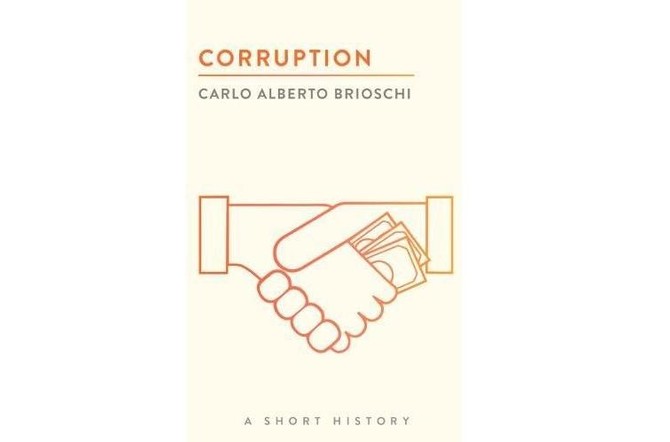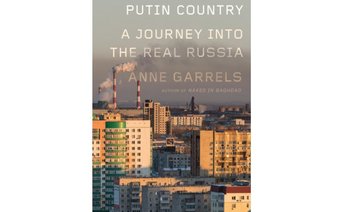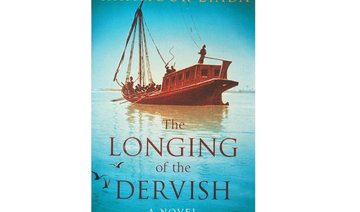Denmark is perceived to be the world’s least corrupt nation, followed by New Zealand, Singapore, Finland, Sweden and Canada, according to the recent findings of the Corruption Perception Index. The report annually ranks countries by their perceived levels of corruption, as determined by expert assessments and opinion surveys. Angola, Somalia, Afghanistan and Iraq linger toward the end of the list.
It has been calculated that the cost of corruption in Europe totals 120 billion euros annually and five European citizens out of six are very worried about the supposed growth of this phenomenon.
“Corruption: A Short History” by Carlo Alberto Brioschi gives readers a brief account of corruption from the days of the great civilizations of antiquity to the 2008 financial crisis.
One of the oldest studies on corruption was written in the fourth century by Indian teacher, philosopher and royal adviser Kautilya who was a minister for Chandragupta Maurya, founder of the Maurya Empire in ancient India. He wrote a captivating book on the art of government entitled “Arthashastra.” One of Kautilya’s best-known sayings highlights the difficulty of proving that a public servant is dishonest: “Just as fish moving under water cannot possibly be found out either as drinking or not drinking water, so government servants employed in government work cannot be found out while taking money (for themselves).” He also wrote: “Just as it is impossible not to taste the honey or the poison that finds itself at the tip of the tongue, so it is impossible for a government servant not to eat up at least a bit of the king’s revenue.”
In ancient times, greasing the wheels of the political system was as common as it is today, but it was not always condemned. Although Plato wrote in “The Republic” that the guardians of the state should not handle or wear gold or silver or drink from gold or silver cups, he realized how difficult it is to govern without doing harm and triggering discontent. He himself admitted that had he gone into politics, he would have perished. Plato acknowledged man’s “despotic instinct” for power. In other words, he recognized man’s apparent natural tendency to use all his power to serve his own personal interests.
It was during these ancient times that the relationship between luxury and decadence took shape, with a strong element of corruption and vested interest. “A people that is too rich is a people weakened, incapable of great things. And… often one of the most highly acclaimed characteristics of many acknowledged great men is a frugality that verges on asceticism,” Brioschi wrote.
In ancient Rome, Julius Caesar was heavily engaged in corruption. He took possession of 15,000 gold ingots and 30,000 silver ingots in order to finance his own campaign and secure his election. The people who provided the funds were rewarded, as was the case with Crassus, a wealthy building contractor who was paid back later with public works contracts.
“The Prince” by Niccolò Machiavelli, a diplomat and writer during the Renaissance period in Italy, is one of the most important texts on corruption. Machiavelli believed that evil is inherent in all political action aimed at the common good. Machiavelli wrote that the prince “must not mind incurring the disgrace of those vices without which it would be difficult to save the state, for if one considers well, it will be found that some things which seem virtues would, if followed, lead to one’s ruin, and some others which appear vices result, if followed, in one’s greater security and wellbeing.”
The author goes on to study corruption that goes on under the cover of politics. “Leaving aside the issue of outright criminals (who at least frequently have the courage to openly avow their own criminality), the real problem is that of the protection and cover offered to the criminality that lurks in the nooks and crannies of the political and judicial administration,” Brioschi wrote.
The author references lobbying in the US, where specific groups and industries hire professional advocates to push for legislative changes in Congress.
Indeed, lobbies are beginning to take root in Brussels and they can exert a decisive influence. In Washington, lobbies constitute an authentic power, with lawyers, employees and representatives for each of the individual categories. In addition, there are also non-profit organizations, citizen groups and public interest groups that lobby on issues which are not always economic in nature. Successful lobbying often brings substantial monetary rewards to the lobbying firms.
The Pilgrim Fathers who left for America to flee the corruption of England would be disappointed to learn that in 2012, a report by the Federal Elections Commission calculated that US senators had to raise nearly $10.5 million in order to win or keep their seats.
Another interesting case mentioned in the book is the situation in some developing African nations, where corruption is so profoundly entrenched that former US President Jimmy Carter said that aid to developing nations consists of taxing the poor in rich nations to help the rich in poorer nations.
Mobutu Sese Seko, the former president of Zaire (now the Democratic Republic of the Congo), had amassed so much wealth that he would charter a private airplane to take his family shopping in Europe. According to the book, he could have written a check to cover his country’s entire foreign debt.
Brioschi concludes that political corruption can be effectively battled and diminished with three weapons: “An efficient and effective system of justice, a free process of newsgathering and reporting and criteria of accountability for every act of governance or administration on the part of elected officials.”
Book Review: A history of corruption
Book Review: A history of corruption

What We Are Reading Today: ‘Digital Cultural Shock’ by Katherina Reinecke

Robots that encroach on your personal space, baffling emojis, a chatbot that gives you an answer that seems terribly rude—does any of this sound familiar?
An encounter with new technology can teach us to embrace the unfamiliar, but a mismatch between design and user can create misunderstanding and loss of trust, and can even become a tool of digital imperialism.
In “Digital Culture Shock,” computer scientist Katharina Reinecke travels through countries and cultures around the world to show the many fascinating ways that technology design and use can differ.
What We Are Reading Today: ‘The Essence of Software’

- “The Essence of Software” introduces a theory of software design that gives new answers to old questions
Author: DANIEL JACKSON
As our dependence on technology increases, the design of software matters more than ever before. Why then is so much software flawed? Why hasn’t there been a systematic and scalable way to create software that is easy to use, robust, and secure? Examining these issues in depth, “The Essence of Software” introduces a theory of software design that gives new answers to old questions.
Daniel Jackson explains that a software system should be viewed as a collection of interacting concepts, breaking the functionality into manageable parts and providing a new framework for thinking about design.
What We Are Reading Today: ‘Flows in Networks’

Authors: Lester Randolf Ford Jr. & D. R. Fulkerson
In this classic book, first published in 1962, L. R. Ford, Jr., and D. R. Fulkerson set the foundation for the study of network flow problems. The models and algorithms introduced in “Flows in Networks” are used widely today in the fields of transportation systems, manufacturing, inventory planning, image processing, and internet traffic.
The techniques presented by Ford and Fulkerson spurred the development of powerful computational tools for solving and analyzing network flow models, and also furthered the understanding of linear programming.
What We Are Reading Today: ‘Planetary Climates’ by Andrew Ingersoll

This concise, sophisticated introduction to planetary climates explains the global physical and chemical processes that determine climate on any planet or major planetary satellite— from Mercury to Neptune and even large moons such as Saturn’s Titan.
Although the climates of other worlds are extremely diverse, the chemical and physical processes that shape their dynamics are the same.
As this book makes clear, the better we can understand how various planetary climates formed and evolved, the better we can understand Earth’s climate history and future.
What We Are Reading Today: ‘Dragonflies of North America’

- “Dragonflies of North America” is the ultimate guide to these extraordinary insects
Author: ED LAM
Dragonflies are large and beautiful insects, diverse in color and pattern. This premier field guide provides all the information you need to identify every male and female dragonfly found in North America, whether in the field, in the hand, or under the microscope.
The extensive illustrations are the heart of the book. Close-up color portraits of each species, often several times life size, show the best possible specimens for close examination.
“Dragonflies of North America” is the ultimate guide to these extraordinary insects.


















